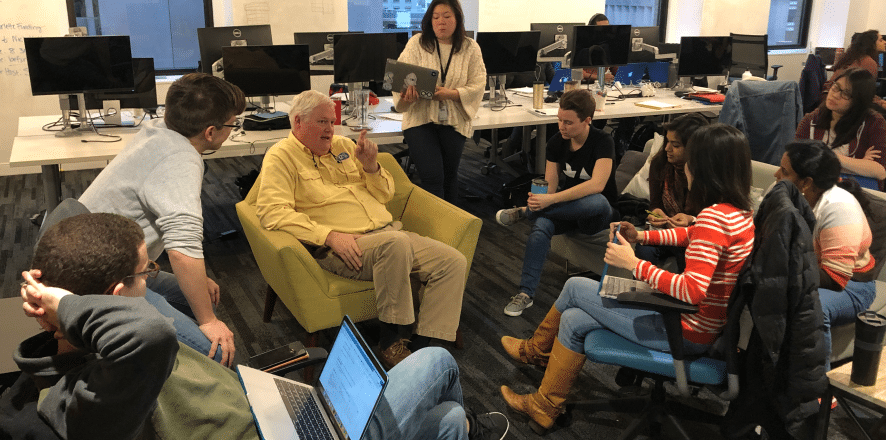Interested in reading the full article? Check it out over on NPR.org by All Things Considered.
Florida is poised to become the first state to allow computer coding to fulfill a foreign-language requirement in high school. In a competitive job market, the thinking goes, computer skills are as important as speaking another language.
At SAIL High School in Tallahassee, a 3-D printer whirs away. It’s turning PVC pipe into a red, Lego-like piece for a robot.
This is the OctoPiRates robotics club. These students will soon compete in a national contest with their hand-built robot. It features a square, metal frame with eight rubber wheels and a scooping arm.
Many of the OctoPiRates members, like Ram Moore, are self-taught.
“I mostly learned on my own, and I took AP Computer Science,” Moore explains. “And from there, I taught myself some other skills.”
Another student, Alexander Olson, says he’s forgotten a lot of the Spanish he took for two years in middle school, and wishes he had learned coding instead: “This would have stuck with me a lot longer.”
Most technology runs on computer code. But it’s not widely taught in Florida’s public schools. Lawmakers are hoping to change that.
State Sen. Jeremy Ring, a Democrat, says he wants students to add coding languages like Python, Java or C++ into the mix of traditional languages like French and Spanish.
“Whether you’re going into politics, sales, it doesn’t really matter,” Ring says. “You need to have a technology understanding in order to compete in life, and in a professional environment.”
